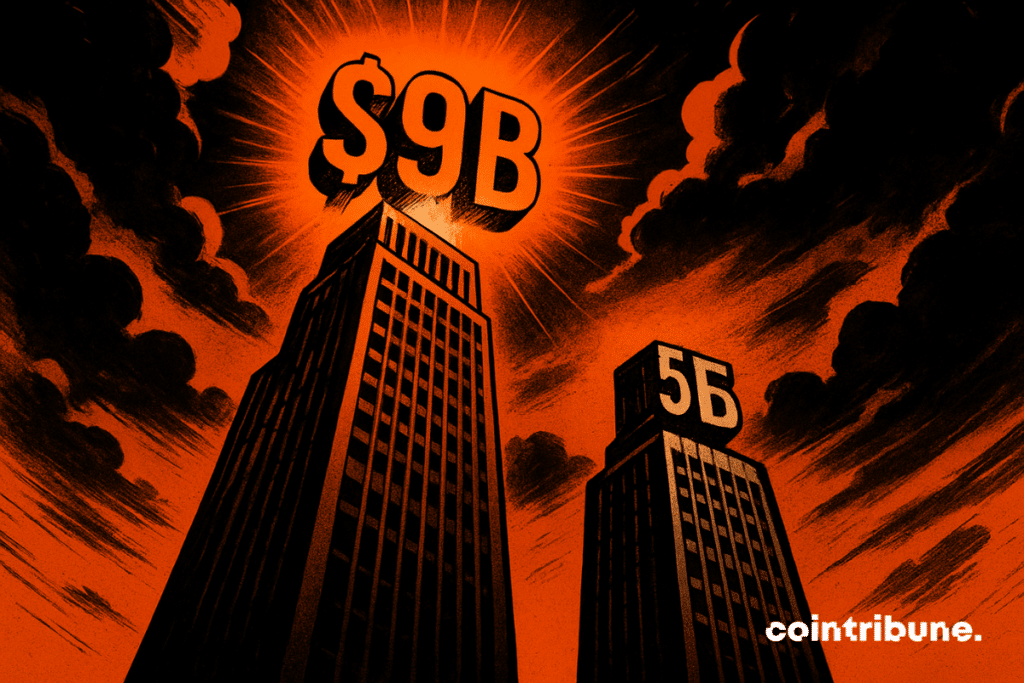Polymarket and Kalshi Chase Multi-Billion Valuations as Decentralized Betting Market Explodes
Decentralized prediction markets just became Wall Street's newest obsession—and the valuations are getting wild.
Market Mania
Polymarket and Kalshi aren't just playing games—they're rewriting how speculation works. Forget traditional betting shops; these platforms let users wager on everything from election outcomes to weather patterns, all settled on-chain. No intermediaries, no paperwork, just pure probabilistic trading.
Billions on the Table
Investors are throwing capital at these platforms like there's no tomorrow. Why? Because decentralized prediction markets don't just bypass regulatory gray areas—they create entirely new asset classes. And when traditional finance finally wakes up, they'll probably try to buy in at a premium—classic FOMO move.
The Final Tally
While skeptics call it glorified gambling, the smart money sees something bigger: a global, permissionless market for information. And let's be real—if banks can bet on derivatives, why can't we bet on whether the Fed will cut rates? At least our markets are transparent.

In brief
- Polymarket is in talks for deals valuing it up to $10B, soaring from $1B just months ago.
- Kalshi nears a $5B valuation, doubling from its $2B initial funding round.
- Both firms partner with giants like Robinhood and X to expand prediction markets.
- Markets raised a record $216M in betting deals this year, triple the total from 2024.
Polymarket Eyes $9B Valuation as Kalshi Reportedly Nears $5B in Investment Talks
Citing anonymous sources, media outlet The Information reported that Polymarket is in talks over an investment deal that could value the company at up to $9 billion. With the startup valued at $1 billion—just a few months ago—the latest valuation WOULD represent a huge price jump from its previous funding round.
According to reports from Business, an investor even tendered a term sheet pegging the company’s valuation at $10 billion.
Meanwhile, The Information simultaneously reported that another counterpart, Kalshi, is in talks for investment, valuing the company at $5 billion. Kalshi was valued at $2 billion during its initial funding round, meaning the current investment valuation is more than twice the price.
For now, the two betting platforms utilize different operational approaches. Kalshi operated as a CFTC-approved platform in the U.S., requiring dollar deposits and utilizing traditional KYC for registration.
Polymarket, on the other hand, serves as a decentralized betting market that runs on the Polygon network and uses USDC settlements. It offers pseudonymous trading and global accessibility.
Kalshi’s investors include big firms like Paradigm and Sequoia Capital. Polymarket is backed by Founders Fund, the venture firm started by Peter Thiel.
Over the past months, the gap in activity between the two platforms appears to have narrowed, with the volume difference in August down to just $125 million.
Decentralized Betting Booms in 2025 with Major Deals and U.S. Expansion
With decentralized betting becoming a growing trend, most major crypto enterprises are keen to enter the legal gambling niche. Underdog and Crypto.com have both launched a decentralized sports betting market on U.S. soil, with Coinbase laying the groundwork for a possible rollout.
Meanwhile, other platforms are partnering with top decentralized sports betting marketplaces. Polymarket has become the official prediction partner of X (formerly Twitter), while Kalshi has teamed up with the trading app Robinhood.
Market data shows that 2025 has been the strongest year yet for prediction markets in terms of capital investments. According to The Block, the betting platform raised over $216 million across 11 deals this year alone. In comparison, only $80 million was raised in 2024, and about $60 million in 2021.
Polymarket, which offers betting options on events such as elections and sports, like NFL football, has been given operational greenlight in the U.S. In a recent report, the company announced that it has been granted a CFTC no-action relief to expand its futures offering.
Maximize your Cointribune experience with our "Read to Earn" program! For every article you read, earn points and access exclusive rewards. Sign up now and start earning benefits.

